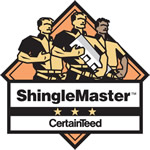Benefits of Flat Roofing

Flat roofing is a type of roofing system that is popular among commercial and residential
buildings. It is characterized by its flat surface and low-pitch angle, which is usually less than 10
degrees. This type of roofing system is often used in areas where the climate is mild and the
weather is generally dry.
Flat roofing is made up of several layers, each of which serves a specific purpose. The first layer
is the roof deck, which is the base of the roof and provides structural support. The second layer
is the underlayment, which is a waterproof membrane that protects the roof deck from water
damage. The third layer is the roofing material, which can be made of asphalt, rubber, or metal.
Flat roofing systems are typically more affordable than pitched roofs, and they require less
maintenance. They also provide a larger surface area, which can be used for solar panels or
other energy-saving features. Additionally, flat roofs are often easier to install than pitched
roofs, which can be more complicated and require more specialized tools and materials.
Despite the advantages of flat roofing, there are some drawbacks. Flat roofs are more
susceptible to water damage, as the water can pool on the surface and cause leaks.
Additionally, flat roofs can be more difficult to repair, as the materials used in flat roofs are not
as durable as those used in pitched roofs.
Overall, flat roofing is an affordable and efficient option for many commercial and residential
buildings. It is important to consider the climate and weather conditions of the area when
deciding whether to install a flat roof, as well as the maintenance requirements and potential
drawbacks. With proper installation and maintenance, a flat roof can provide a reliable and
long-lasting roofing system for many years to come.
Importance of Flat Roofs
Flat roofs are constructed using a variety of materials, including asphalt, rubber, and metal.
Each material has its own advantages and disadvantages, so it is important to choose the right
one for the specific application. Asphalt is a popular choice for flat roofs because it is relatively
inexpensive and easy to install. Rubber is more expensive but is also more durable and can last
for decades. Metal is the most expensive option but is also the most durable and can withstand
extreme weather conditions.
Flat roofs offer several advantages over sloped roofs. They are more cost-effective to install and
maintain, and they can be used to create a variety of designs. Flat roofs are also easier to access
for repairs and maintenance, and they can provide additional living space on the roof.
Flat roofs are also more energy-efficient than sloped roofs. They can help reduce energy costs
by reflecting heat away from the building and allowing air to circulate more freely. This helps
keep the building cooler in the summer and warmer in the winter, reducing the need for air
conditioning and heating.
Flat roofs are also more resistant to wind and water damage than sloped roofs. This is because
flat roofs are less likely to be damaged by strong winds and heavy rains, and they are better
able to withstand the pressure of snow and ice.
Finally, flat roofs are easier to maintain than sloped roofs. They require less frequent cleaning
and repairs, and they are less likely to be damaged by debris or pests.
Flat roofing is a popular choice for many commercial and residential buildings. It is cost-
effective, easy to install, and can be customized to fit any roof shape. Flat roofing also offers
many benefits that make it the preferred choice for many homeowners and business owners. In
this article, we will discuss the advantages of flat roofing and what you need to know before
making a decision.
Cost of Flat Roofs
Cost-effectiveness is one of the primary benefits of flat roofing. Flat roofs are generally less
expensive to construct than pitched roofs, and they require less maintenance over time. Flat
roofs are also more energy efficient than pitched roofs, as they absorb less heat from the sun,
reducing the need for air conditioning. Additionally, flat roofs are easier to access for repairs,
which can save money on labor costs. Flat roofs are also more durable than pitched roofs, as
they do not suffer from the same wear and tear due to weather conditions. Finally, flat roofs
are easier to waterproof, which can save money on costly repairs due to water damage.
Flat Roof Durability
Flat roofing is an excellent choice for many buildings due to its durability. Flat roofs are
designed to withstand the elements, including wind, rain, snow, and hail, and can last up to 20
years with proper maintenance. Flat roofs are also less likely to suffer from leaks and other
damage due to their flat surface. Additionally, flat roofs are relatively easy to install and
maintain, making them a cost-effective choice for many buildings. Flat roofs are also great for
adding additional outdoor living space, such as a rooftop deck or patio, and can be used to
collect rainwater for use in gardens or other outdoor areas. With its long-lasting durability and
cost-effectiveness, flat roofing is an excellent choice for many buildings.
Versatility
Flat roofing is a versatile option for many types of buildings. It is an economical choice that can
provide a range of benefits. Flat roofs are easy to install and maintain, and they can be
customized to fit the needs of the building. They are also more resistant to wind and rain than
pitched roofs, making them a great choice for areas that experience extreme weather
conditions. Flat roofs are also energy efficient, as they allow for better insulation and
ventilation. Additionally, they can provide additional space for outdoor activities such as
gardening, entertaining, or even installing solar panels. With its many advantages, flat roofing is
a great option for any building.
In conclusion, flat roofing offers many benefits that make it the preferred choice for many
homeowners and business owners. It is cost-effective, durable, and versatile, which makes it a
great option for any roofing project. Before making a decision, it is important to research the
different types of flat roofs and determine which one is best suited for your needs. Additionally,
it is important to consult with a professional roofer to ensure that your flat roof is properly
installed and maintained.

In Awe Roofing Limited is an Award-Winning, family owned and operated Vancouver Roofing Contractor with over 17 years of roofing experience. We serve the entire Lower Mainland area, from Whistler to Chilliwack, employing a team of professional staff members. Our team has won numerous awards including Best of Homestars for the last five years, and Three Best Rated six years in a row. Learn more






















